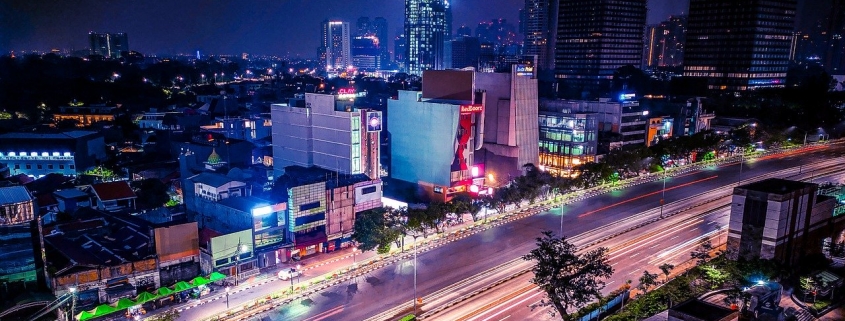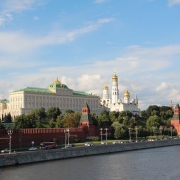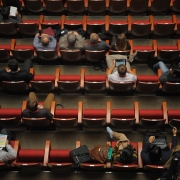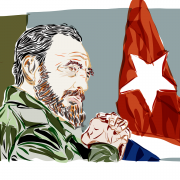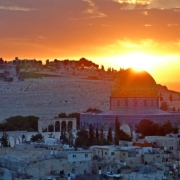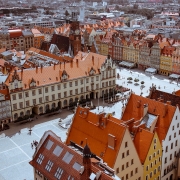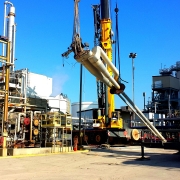What is New Order?
Topic of Study [For H2 History Students]:
Paper 2: Search for Political Stability
Section B: Essay Writing
Theme I Chapter 1: Approaches to Governance
Historical Context: The 30 September movement
After President Sukarno declared the start of the “Guided Democracy” in 1957, the Indonesian government consolidated political control to restore peace and stability in the nation. However, Sukarno encountered difficulties in managing two notable roles – the military and the Partai Kommunis Indonesia (PKI). As such, he sought to re-energise the Indonesian society through the campaign in West New Guinea and the Konfrontasi, declaring a revival of the Indonesian Revolution.
On 30 September 1965, an abortive coup had resulted in the deaths of six senior generals (later known as the Gerakan 30 September). As the leader of the KOSTRAD (Komando Strategis Angkatan Darat, also known as the Army Strategic Command), General Suharto investigated the incident. Subsequently, the PKI was accused of launching the coup.
The end of Guided Democracy: Supersemar
On 11 March 1966, President Sukarno signed a decree that granted Suharto full political authority to restore order in Indonesia. The transfer of executive power was known as Supersemar (Surat Perintah Sebelas Maret)
III. Memutuskan/Memerintahkan:
Kepada: LETNAN DJENDRAL SUHARTO MENTERI PANGLIMA ANGKATAN DARAT
Untuk: Atas nama Presiden/Panglima Tertinggi/Pemimpin Besar Revolusi:
1. Mengambil segala tindakan yang dianggap perlu untuk terdjaminnja keamanan dan ketenangan, serta kestabilan djalannja pemerintahan dan djalannja Revolusi, serta mendjamin keselamatan pribadi dan kewibawaan Pimpinan Presiden/Panglima Tertinggi/Pemimpin Besar Revolusi/Mandataris M.P.R.S. demi untuk keutuhan Bangsa dan Negara Republik Indonesia, dan melaksanakan dengan pasti segala adjaran Pemimpin Besar Revolusi.
Excerpt from Supersemar (Order of Eleventh March), 11 March 1966.
From the above extract, it states that General Suharto was granted the authority to take any necessary measures to guarantee the security, stability and progress of the Indonesian Revolution.
The New Order
After the Supersemar was signed, the PKI was banned. Between June to July 1966, the membership within the People’s Consultative Assembly (Majelis Permusyawaratan Rakyat Sementara), which operated as the legislative branch of the Indonesian political system, experienced a purge. Individuals that formerly supported Sukarno were removed on the basis of being involved in the 30 September Movement.
Agains the Cold War backdrop, the USA also made observations that the rise of Suharto was a notable development that ushered a period of political stability in Indonesia after Sukarno’s inability to manage the Communist threat in the 1950s and 1960s.
The regime of General Suharto has brought Indonesia to a stage of imposed political stability and the beginnings of economic revival. Although the army holds predominant and ultimate political power, civilian participation in government is considerable and effective.
The New Order sees its basic tasks as the restoration of the economy, the continued suppression of Communism, and the development of stable representative government which would include a substantial political role for the army.
An excerpt taken from the Weekly Summary Special Report: The New Order in Indonesia, Central Intelligence Agency, 11 August 1967.
After the New Order was established, Suharto granted the military a political role to maintain stability. The concept of dwifungsi (dual function) was implemented as a policy to legitimise its role.
Until the fall of Suharto, the military considered dwifungsi to be its function, reason and spirit. The missions of security and socio-political development were inseparable. By directing socio-political development, the military served to support the goals of development, political and social stability, defence and national integrity. Any deviant social or political movement that threatened the status quo was seen as a threat to national security.
An excerpt from “Power Politics and the Indonesian Military” by Damien Kingsbury
What can we learn from this article?
Consider the following question:
– Assess the significance of the military in maintaining political stability of Indonesia under the New Order regime.
Join our JC History Tuition and learn more about the history of Indonesia and other Southeast Asian states.
The H2 and H1 History Tuition feature online discussion and writing practices to enhance your knowledge application skills. Get useful study notes and clarify your doubts on the subject with the tutor. You can also follow our Telegram Channel to get useful updates.
We have other JC tuition classes, such as JC Math Tuition and JC Chemistry Tuition. For Secondary Tuition, we provide Secondary English Tuition, Secondary Math tuition, Secondary Chemistry Tuition, Social Studies Tuition, Geography, History Tuition and Secondary Economics Tuition. For Primary Tuition, we have Primary English, Math and Science Tuition. Call 9658 5789 to find out more.

